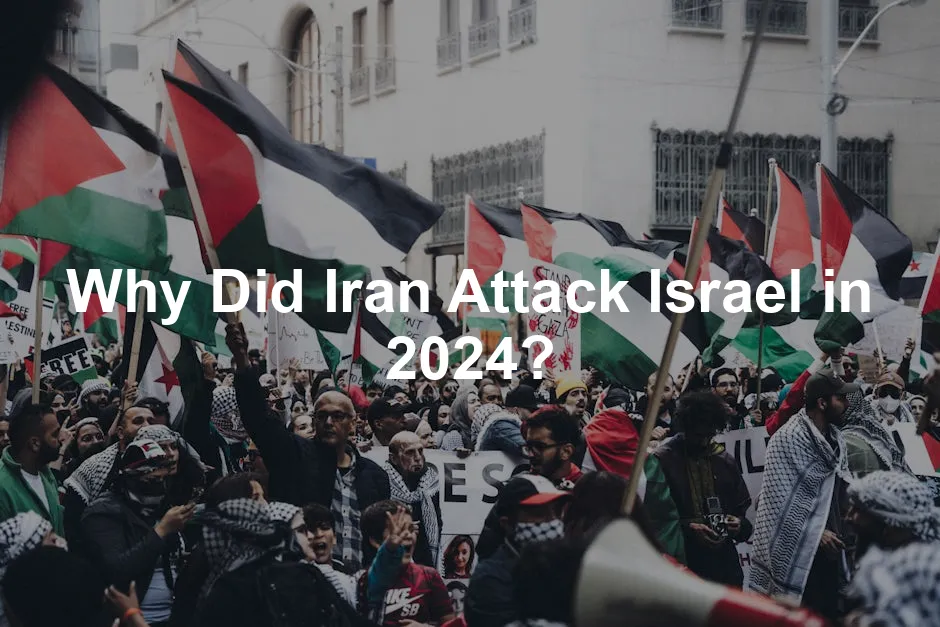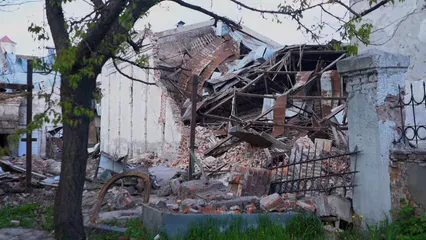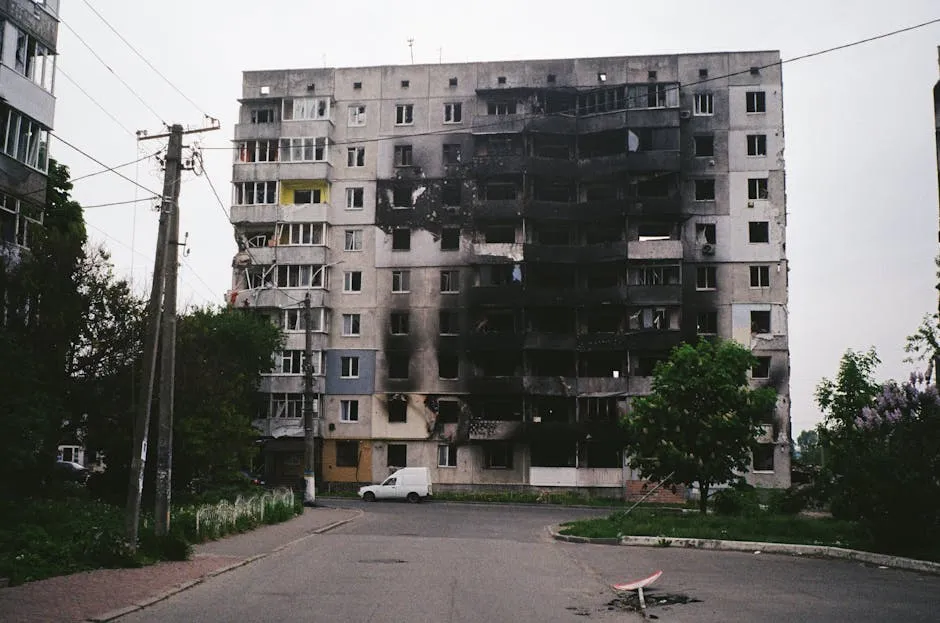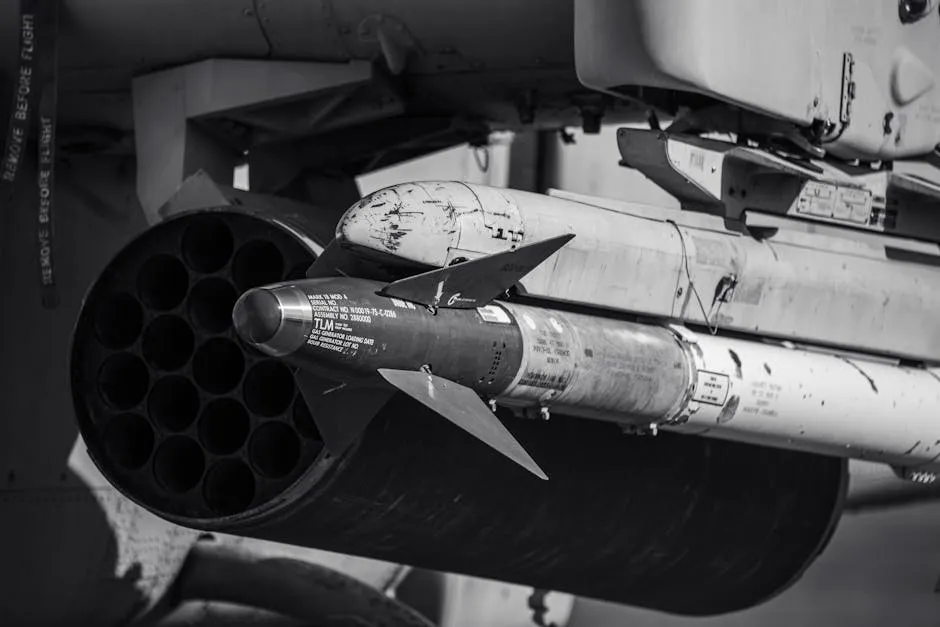
Why Did Iran Attack Israel in 2024?
Introduction
In October 2024, Iran launched a missile attack on Israel. This marked a significant escalation in the long-standing conflict between the two nations. The attack highlighted the ongoing tensions and complex dynamics in the region. Understanding the motivations behind this bold move is essential for grasping the future of Middle Eastern stability.
Summary and Overview
Leading up to the attack, tensions escalated dramatically. Reports indicated that Iran fired nearly 200 missiles at Israel. The strike targeted military installations, but many were intercepted by Israel’s air defense systems. Global reactions were swift, with many nations condemning the attack. This incident raised serious concerns about regional stability and the potential for further conflict.
The backdrop included Israel’s military actions in Gaza and Lebanon. The situation intensified following the assassination of key figures in Iranian-backed groups. The conflict’s implications extended beyond the immediate region, affecting international relations and military strategies.

If you’re looking to dive deeper into the historical context of the Middle East, consider reading “The Modern Middle East: A History” by James L. Gelvin. It provides a thorough overview that can help contextualize recent events.
The Historical Context of Iran-Israel Relations
The Evolution of Hostilities
The animosity between Iran and Israel has deep roots. Since the Iranian Revolution in 1979, both nations have viewed each other as adversaries. Major events have included Iran’s support for groups like Hezbollah and Hamas, which actively oppose Israel. Israeli airstrikes on Iranian interests have further fueled tensions over the years.
Significant moments, such as the assassination of Iranian military leaders and direct military confrontations, have shaped their relationship. Each incident has deepened mistrust, setting the stage for future conflicts. Understanding this historical context is crucial for analyzing the recent missile attack and its fallout.

If you’re intrigued by the complexities of the Middle East, I highly recommend “The Iran-Iraq War: A Military and Strategic History” by Efraim Karsh. It provides a gripping account of one of the region’s most significant conflicts.
The Role of Proxy Wars
Iran has long supported militant groups that target Israel. This support includes funding, training, and supplying weapons to groups like Hezbollah and Hamas. These organizations act as Iran’s strategic arm in the region. They strike against Israeli interests while allowing Iran to maintain plausible deniability.
The impact of these proxy conflicts is profound. Direct military engagements are often avoided, but tensions escalate through these indirect confrontations. Each attack by a proxy group can lead to retaliatory strikes from Israel, further straining relations. This cycle of aggression fosters an environment of perpetual unrest, complicating peace efforts in the region.

For a deeper understanding of the complexities surrounding these proxy wars, check out “Iran’s Proxy Wars: The Shadowy World of Iranian Influence” by Michael T. Klare. It’s an eye-opener!
Key Events Leading Up to the Attack
The Gaza Conflict
The violence in Gaza escalated significantly in 2024. Reports indicate that around 40,000 Palestinians have died since the conflict reignited. This staggering loss of life fueled anger in Iran and among its allies. The situation in Gaza directly influenced Iran’s decision-making. As Israeli military actions intensified, Iran felt compelled to respond.
Assassination of Key Figures
Key assassinations heightened Iran’s urgency for retaliation. The killing of leaders from Hamas and Hezbollah sent shockwaves through Iranian leadership. These losses were perceived as direct attacks on Iran’s influence in the region. The sentiment for revenge grew stronger, pushing Iran to consider more aggressive military action against Israel.

Recent Military Exchanges
Military confrontations between Israel and Iranian proxies in Lebanon have escalated. In recent months, Israeli airstrikes targeted numerous Hezbollah positions, resulting in significant casualties. Specific incidents, such as the death of Hezbollah leader Hassan Nasrallah, triggered widespread calls for retaliation. These events heightened tensions, paving the way for Iran’s missile attack on Israel.
The Nature of the Attack
Details of Iran’s Missile Strikes
On October 1, 2024, Iran executed a large-scale missile attack on Israel. They launched nearly 200 ballistic missiles, targeting key military installations across the country. The missiles included a mix of various types, notably designed for high-speed, long-range strikes. Major targets included airbases like Nevatim, Hatzerim, and Tel Nof, as well as military tanks and gas installations in Ashkelon.
Despite the barrage, Israel’s defense systems showed resilience. The Iron Dome, along with other air defense systems like David’s Sling and Arrow, intercepted a significant portion of the missiles. Initial reports suggest that while some damage occurred, the overall effectiveness of Israel’s defense mechanisms minimized potential devastation. Most of the projectiles were thwarted before reaching populated areas, showcasing the capabilities of Israel’s military technology.

Intrigued by military strategies? You might want to check out “The Art of War” by Sun Tzu. It’s a timeless classic that offers insights into strategy and tactics!
Casualties and Damage Assessment
The immediate aftermath of the missile strikes resulted in various casualties and damage reports. While many missiles were intercepted, some did land in central and southern regions of Israel, resulting in minor injuries to civilians. Notably, a Palestinian man in the West Bank was killed due to falling debris from intercepted missiles.
Damage assessments indicate that several air force bases suffered impacts, particularly in administrative buildings. Reports from local authorities revealed damages to around 100 homes and a school in Gedera sustained extensive damage. The attack’s consequences extended to psychological impacts on civilians, prompting heightened fears and destabilization within Israeli communities, particularly in areas directly affected by the strikes.

Motivations Behind Iran’s Attack
Retaliation for Israeli Actions
Iran framed this missile attack as a retaliation for what they described as ongoing Israeli aggressions. Iranian officials publicly declared the strikes a necessary response to the recent Israeli military actions, particularly the targeted assassinations of key figures in Hamas and Hezbollah. They asserted that these attacks violated Iranian sovereignty and justified their military response.
Statements from Iranian leadership emphasized the notion of self-defense, portraying the missile strikes as a protective measure against Israeli provocations. This narrative aligns with Iran’s longstanding rhetoric regarding its role in the region, positioning itself as a defender of oppressed groups and a challenger to Israeli military dominance. The attack, therefore, served as both a retaliatory measure and a signal of Iran’s commitment to its allies in the Axis of Resistance.
Furthermore, the role of groups like Hamas in this context is crucial. Understanding their involvement can shed light on the broader implications of the conflict. For more details on this aspect, check out this article on why did Hamas attack.

Understanding the role of Hamas in the conflict is essential for grasping the motivations behind Iran’s military actions. why did Hamas attack
Regional Power Dynamics
Iran’s missile attack on Israel reflects its ambition to assert dominance within the Axis of Resistance. This coalition includes Syria, Hezbollah, and other groups opposing Israeli influence. By launching such a significant strike, Iran aims to reinforce its leadership role in this alliance.
The attack aligns with a broader strategy to counter perceived Israeli aggression in the region. Iran seeks to project strength, particularly in light of escalating conflicts involving its allies. The missile strikes serve as a message to both regional and global powers about Iran’s capabilities and intentions.
This military action also signals a shift from proxy confrontations to direct engagement. Iran’s leadership may believe that demonstrating military strength will deter further Israeli operations targeting Iranian interests. It is a calculated move that reflects a desire to reshape the regional balance of power.

Domestic Factors in Iran
Domestic political considerations play a crucial role in Iran’s decision to escalate conflict with Israel. The Iranian government faces significant pressure to respond to recent events. Public sentiment in Iran has been largely supportive of military action against Israel, especially following the high-profile assassinations of key figures linked to Iranian-backed groups.
The regime capitalizes on this support to rally nationalistic sentiments. By framing the attack as a defense of Iranian sovereignty, the government seeks to unify public opinion. This narrative bolsters domestic legitimacy, especially in a time of economic challenges and dissent.
Moreover, internal political dynamics may influence the timing and nature of Iran’s military responses. Leaders may view a strong military stance as a way to distract citizens from economic woes and domestic issues. Thus, the attack serves both as retaliation and a tool for domestic cohesion.
Israel’s Response to the Attack
Military and Political Reactions
Israel wasted no time in responding to Iran’s missile barrage. The Israeli Defense Forces (IDF) launched immediate military retaliation, targeting Iranian positions in Lebanon and other locations. Israeli leadership characterized the attack as a serious escalation that would not go unanswered.
Israeli Prime Minister Benjamin Netanyahu stated that Iran made a significant mistake by attacking. He emphasized that Israel would take all necessary actions to protect its citizens and military. The rhetoric from Israeli officials indicates a commitment to a robust response, signaling potential escalation in military operations.
In addition to military actions, Israel is also focusing on diplomatic channels. Israeli officials are engaging with global allies, aiming to ensure continued support against Iranian aggression. This multifaceted approach highlights the seriousness with which Israel views the recent escalation and its commitment to national security.
International Reactions
Following Iran’s missile attack on Israel, global powers responded swiftly. The United States condemned the assault, labeling it as “ineffective.” President Biden reiterated his support for Israel, emphasizing its right to self-defense. European nations echoed similar sentiments, urging for de-escalation.
These reactions could shape future actions by both Israel and Iran. A robust international response might deter further Iranian aggression. Conversely, perceived inaction could embolden Iran to escalate its military strategy. The dynamics of global politics will play a crucial role in determining the trajectory of this conflict.

Future Implications of the Conflict
Potential for Broader Regional Conflict
The confrontation raises serious concerns about a wider regional conflict. Should hostilities continue, allies of both Iran and Israel may become involved. This scenario could lead to a multi-front war, drawing in nations like Lebanon, Syria, and even Gulf states.
The United States, along with other international players, may find itself in a complex position. While mediation efforts could prevent escalation, military interventions might also be on the table. The next steps will heavily influence the stability of the Middle East.

If you’re interested in the broader historical context, consider picking up “A History of the Middle East” by William Cleveland. It’s a fantastic resource that delves into the historical intricacies of the region.
Long-Term Consequences for Iran and Israel
This conflict could reshape the geopolitical landscape in the Middle East. For Iran, a continued military engagement may solidify its role in the Axis of Resistance. This coalition includes various militant groups that oppose Israeli influence.
In Israel, the conflict could lead to a shift in domestic politics. Public support for military action may rise, impacting future elections and policies. Both nations face a critical juncture that will dictate their strategic approaches moving forward.

Conclusion
In summary, the recent missile attack by Iran on Israel marks a significant escalation in their ongoing conflict. International reactions demonstrate a unified front in support of Israel. The implications for regional stability and future actions are profound. As tensions mount, both nations may find themselves at a pivotal crossroads, influencing the broader Middle Eastern landscape for years to come.
FAQs
Why did Iran attack Israel in October 2024?
Iran’s attack was motivated by retaliation for Israeli actions, including targeted assassinations and military operations in Gaza.
What types of missiles did Iran use in the attack?
Iran deployed ballistic missiles designed for long-range strikes, significantly increasing the scale of its military engagement.
How did Israel respond to the attack?
Israel launched immediate military retaliations, targeting Iranian positions and affirming its commitment to national security.
What are the potential consequences of the attack for regional stability?
The attack raises fears of a broader conflict, potentially involving regional allies and heightening tensions across the Middle East.
How has the international community reacted to the conflict?
The international community has largely condemned Iran’s actions, with significant support for Israel’s right to defend itself.
Please let us know what you think about our content by leaving a comment down below!
Thank you for reading till here 🙂
All images from Pexels




